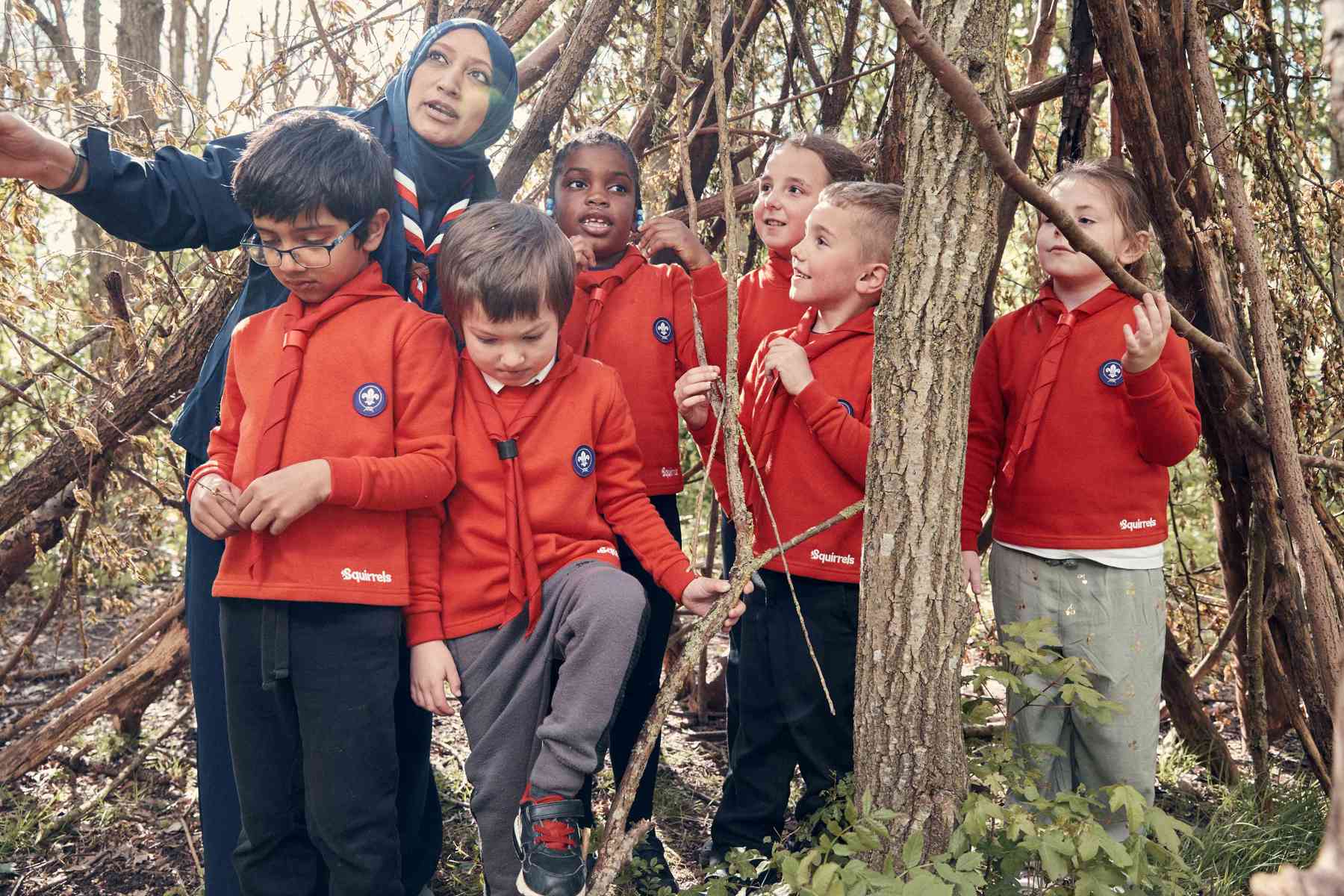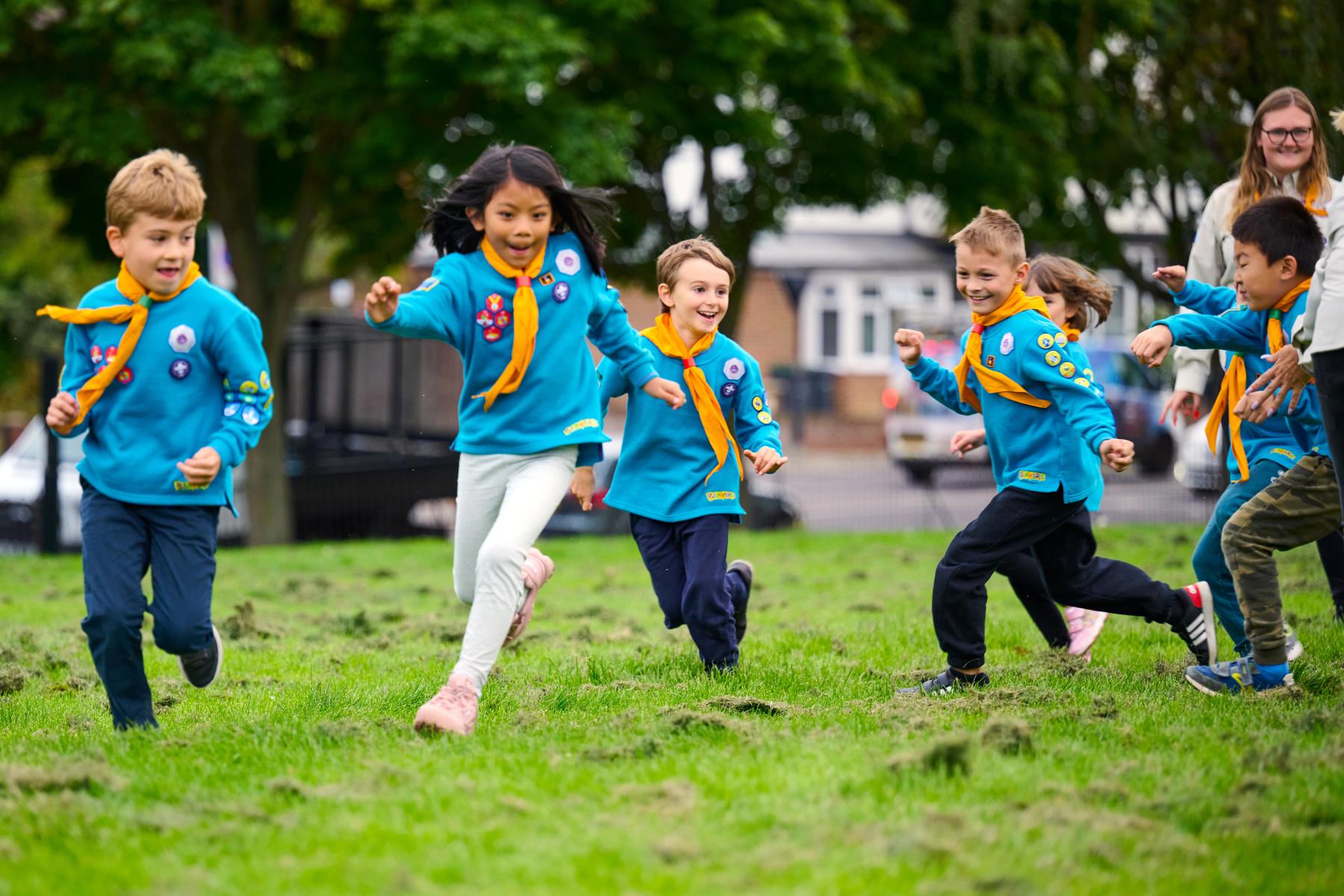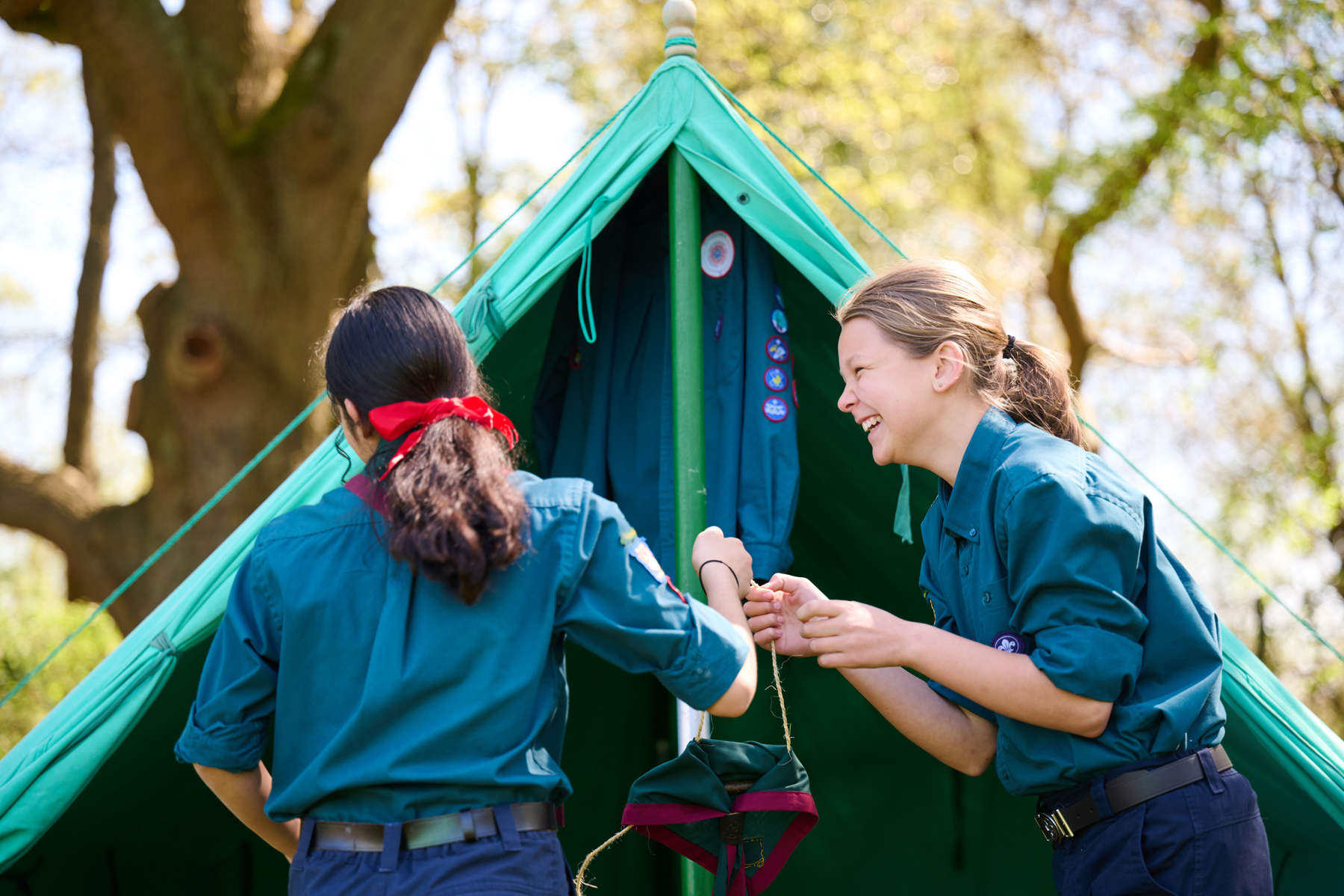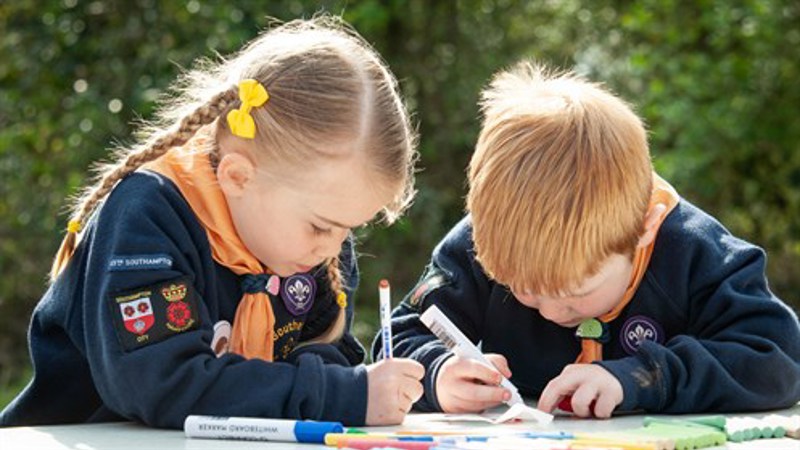Media toolkit
Learn how to generate positive local media coverage on the radio, in print and online outlets, and via community WhatsApp groups.
High-quality local media work is an effective, engaging, and low-cost method to promote what Scouts does within your community.
What should I contact the media about?
Media work can be used to create a local buzz, raise awareness of local plans, promote new opportunities, and celebrate the impact being achieved through Scouts.
- Warm environment. Stories that create a positive local buzz and challenge any inaccurate perceptions of what Scouts does.
- Promoting a new Group/Section. Using stories to build excitement and awareness about opportunities coming in your community, for both young people and adults.
- Opening a new Group/Section. Stories designed to help recruit adult volunteers and young people who want to be part of the Scouts’ fun.
- Celebration and impact. Stories that share what’s been achieved through Scouts, including new skills developed by young people.
Generating local media coverage
Effective communication between organisations like Scouts and local journalists is the key to successfully generating media coverage.
Journalists are busy people. For effective communication, help them understand what Scouts is in simple, understandable terms. Here are some examples:
- Scouts are do-ers and give-it-a-go-ers. Yes, we go camping, hiking, swimming, abseiling, cycling and canoeing. But, we also get to hang out with our friends every week – having fun, playing games, working in a team, and taking on new challenges.
- Every week we give almost half a million 4 to 25-year-olds the skills they need for school, college, university, job interviews, important speeches, the tricky challenges, and big dreams: the skills they need for life.
- Everyone’s welcome here. All genders, races, and backgrounds. Regardless of your young person’s physical ability – there’s a Scout adventure out there waiting for them.
Where should I start?
- Be prepared and clear. When talking about Scouts, it’s vital to be consistent in what you say and know the relevant facts. Always use inclusive images and plain English.
- Be relevant and inspiring. The photos and images you use should be relevant to the audience you’re trying to reach. Consider how you say things, and the tone you choose (positive, challenging, friendly, informal, or surprising).
- Be consistent and inclusive. Scouts is open to all. Any material produced locally should represent and promote this. Wherever we are in the UK, we’re all part of the same movement, it’s important we reflect this in any media work we do.
- Be seen. Scouts offers so much to so many people, we should all feel proud to promote it locally.
Take a look at our how to generate a piece of media coverage flowchart for a more detailed view of the process.
How do I work with media outlets?
Many community outlets will be happy to use positive media stories about Scouts. Be aware that you’re often in ‘competition’ with other community organisations such as running clubs, fundraisers, and schools. The quality of the information and photos you provide, along with your own level of enthusiasm are very important, in making your pitch stand out to the outlet.
Examples of community outlets:
- Community magazines
- Local authority publications
- School newsletters
- Town magazines
- Other organisations that issue regular newsletters or magazines – including publications that are released electronically, rather than on a hard copy. Think about religious organisations, colleges, or local communities.
Local community magazines can be harder to research than local newspapers. Look online or talk to residents to discover which outlets they receive in their area. Community magazines are often interested in articles from local organisations. It’s a good idea to build a relationship with the editor, call them before you submit an article to find out about any requirements. If you submit quality items regularly (normally monthly) you’ll build trust with the editor, which should mean they’ll be helpful to you. It’s vital you know the publication’s deadlines and provide all information on time.
Local newspapers usually have a limited amount of room for community items. The areas they cover are often very wide, meaning competition for space is high. These papers rely on advertising for income, so there may be little room for general items. Try to get to know reporters, and provide them with good quality stories and pictures. Online news outlets can be linked to a local newspaper, so try asking for your story to appear in hard copy and on their website. Most areas have a local website, looking for a community news stories. These outlets may have their own social media, so remember to ask if they’ll share the content too.
Writing a letter to the editor of a local newspaper or community magazine is another good way to get a positive Scouts story into the press. Letters could be submitted by a volunteer from the Group/Unit/District, a parent or carer of a young person in the Group, or a member of the public. Letters might relate to a new Scout Troop opening, or be the words of a parent or carer explaining how their young person has developed skills for life through Scouts.
Phoning the team at a local radio station is the best way to start the process of getting a Scouts related subject mentioned on air. You’ll need to pitch your story and follow it with some hard copy details. Items like Scouts going on a week-long camp probably won’t be headlined, whereas talking about an increase in the number of young people involved in Scouts locally is more likely to get coverage.
Being able to talk about a general increase in membership across a County is more likely to get coverage than more children at a specific Scout Troop. Sending the radio station an article, to include on their website, may also bring rewards. There’s always the possibility of getting a slot on a radio programme to talk about your subject. Why not ask if you can talk to one of the presenters on air?
It’s important to remember radio interviews reach different people at different times of the day. School run time is great, as there’ll be lots of people listening in their cars. This type of interview can be an opportunity for young people to talk about their experiences and share a passion for Scouts. You won’t need any special equipment, most radio interviews are done over the phone. Always plan in advance what message you want to get across. Try practising with a friend.
Remember be positive, bold, and proud to be part of Scouts!
WhatsApp groups tend to be hyper-local, often covering just a handful of roads. In reality, they can be hard to discover, but are worth the effort as they’re a powerful way to communicating with local communities. When you know that a WhatsApp group exists, you should try and find local residents happy to share Scouts related messages or information on your behalf.
What makes a good picture?
Inspiring photography is at the heart of a good story. Our photography should show our diversity, fun, friendship and adventure but above all, give a sense of belonging. The emphasis should be on capturing moments of connection, learning, sharing, achievement and friendship. They should focus on the emotional response to activities rather than simply showing the activities themselves. Here are some examples.



Managing photographs and video
Learn how to keep children and young people safe when creating and using digital content.
Read our digital safeguarding guidelinesPitching your story to the news outlet
You’ve written your press release, chosen your picture(s) and know your story inside out. Congratulations, you’re ready to pitch. The way you pitch a story to a local media outlet is vital to whether it’s included in the paper, magazine, or website.
Phone the media outlet and ‘sell’ the story to them. Introduce yourself and explain the story, it might be that a Scout Troop has recently opened, to meet a demand from young people aged 10 to 14. Or it could be information explaining how, through Scouts, teenagers are gathering the skills needed for university, college, work, or an apprenticeship. Ask for the reporter’s name and email address, so you can send the press release to them. Send your information to the reporter or news desk, and ask if they could include the story on their website and social media channels.
If you see the published article, email the reporter thanking them for including it. If the story is on their website, share the link via any social media channels your Scout Group has, and pass it on to your District/County for them to support the story.
If the article isn’t on the outlet’s website within a few days, or doesn’t appear in their hard copy weekly publications, contact the person you spoke to, asking if they need any further information. The journalist may just need a reminder.
Next steps
Once you’ve had success, it’s important to keep the good news going. In a few weeks’ time start the process again, with another story. Media work is most impactful when you keep a regular presence, rather than occasional news spikes every few months.

Find out how to write a press release to local media about a Scout event.

Get top tips and guidance on how to use social media to engage with people outside of Scouts.

Learn to use member communication to build a network of advocates and supporters.

Learn how to organise and promote a local Scouts event.